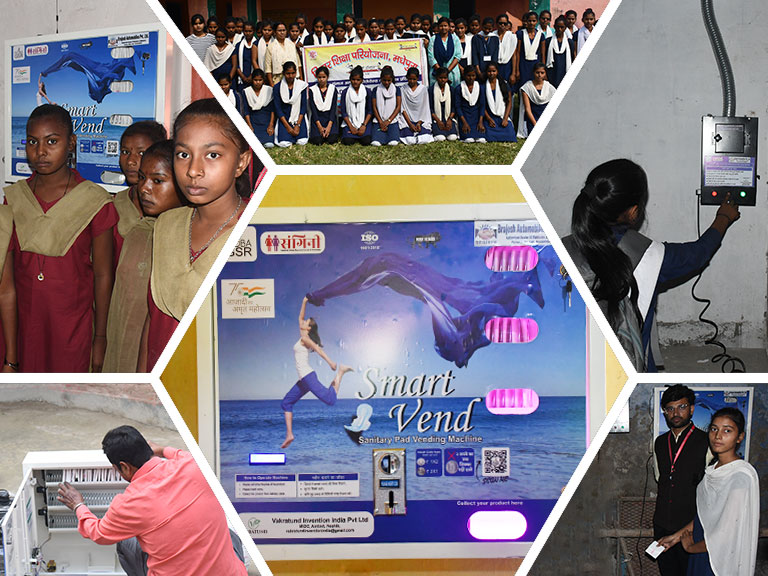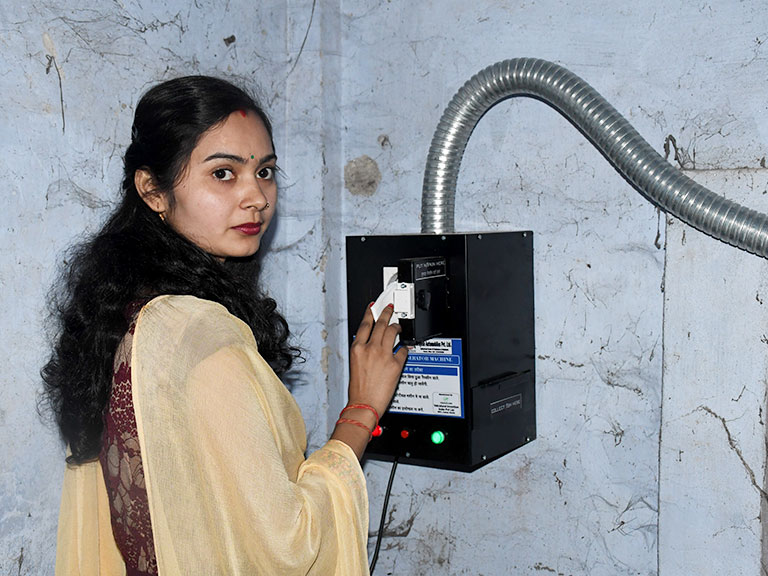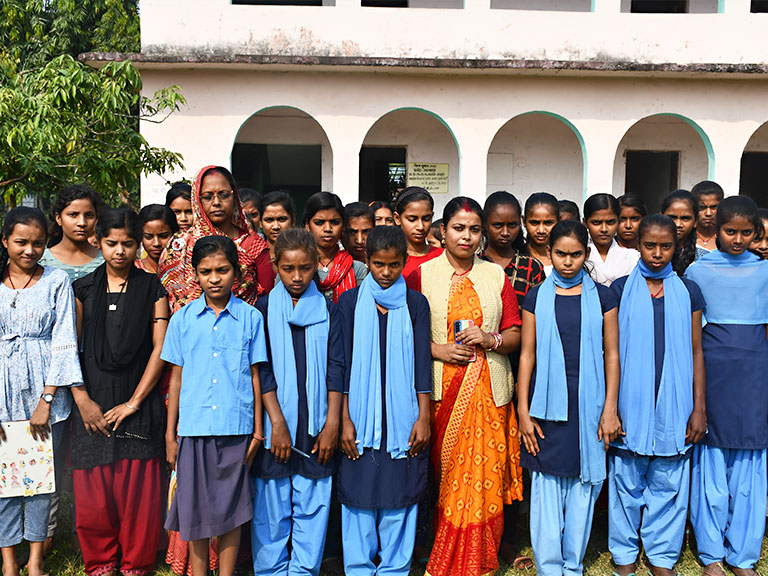Sangini – NOBA GSR
Netarhat Old Boys’ Association conceptualized a program called “Sangini” under Global Social Responsibility with an aim to strengthen female health in rural areas & educate them about menstrual hygiene. With the extended support of many like-minded people & organizations, NOBA GSR is trying to break many myths and stigmas through the installation of the sanitary pad making & dispensing machines together in rural areas of Bihar & Jharkhand. The vending machines will be installed to ensure an effective, safe, and convenient mode for any time access to sanitary napkins.
Menstruation is a natural, physiological function. A large section of society considers women ‘Impure’ during menstruation. In our country, about 21% of girls drop out of school when they start menstruating. Underprivileged women & girls use old dirty clothes, Newspapers & even mud during menstruation. This has a huge impact on the overall development of girls.
Our main challenge is to address the shame, taboos and several myths attached to periods and menstrual hygiene.

We need to work dedicatedly by identifying gaps and creating awareness to bring effective behaviour change in not just women but in the whole society. Sanitary pads are expensive & about 70% of women cannot afford them. These machines will help those girls who start menstruation for the first time & do not have a fixed menstrual cycle.

SANGINI VISION & MISSION
Our mission is to remove period poverty from Bihar andJharkhand by providing access to affordable andhygienic sanitary pads to all girls and women. Our visionis to reach out to all 4.6 crore vulnerable girls andwomen across India.
Objectives
- Create awareness of menstrual hygiene among ruralwomen.
- Provide easy access to sanitary pads at anaffordable price.
- Provide hygienic and safe disposal of used pads.
- Encourage/influence state governments to adopt this initiative.


Issue Statement:
- Only ~36% of the 335 millions menstruating womenin India use sanitary napkins for their personalhygiene needs
- A significant percentage rely on old rags, plastic, sandand ash to address their hygiene requirements
- 70% of Indian families cannot afford the sanitarynapkins currently available in the market
- 23% of girls in India drop out of school once they hitpuberty between age of 10-14
- The percentage of women using safe menstrualproducts is lowest in Bihar
SANGINI IMPACT
Our machines are now capable of providing more than 12,500,000 padsevery year at just Rs. 2. We have already touched the lives of more than 1lakh girls and women, reducing absenteeism, dropout rates, andincreasing their performance.
Sangini’s impact is being evaluated using three straightforward indicators,namely –
- Decreased dropout rates,
- Decreased absenteeism, and
- Improved academic performance among girls.
While we have not yet rigorously assessed every school, we have observedconsiderable strides in reducing absenteeism. The remaining indicatorswill be evaluated over time.